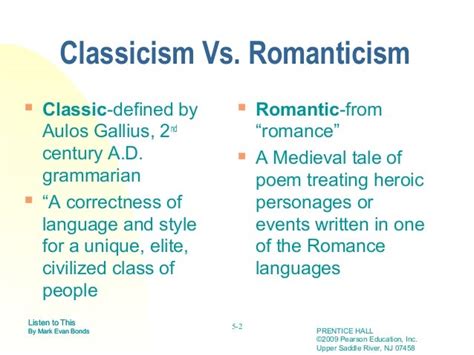In the vast expanse of philosophical thought, individualism has been a recurring theme, shaping the way we understand ourselves, our relationships, and our place in society. Two influential philosophical movements, Classical and Romantic, have offered distinct perspectives on individualism, reflecting the intellectual and cultural currents of their time. This article will delve into the core principles of Classical and Romantic individualism, exploring their historical context, key tenets, and the implications of each philosophy.
The Emergence of Individualism
Individualism, in its most basic sense, is the idea that the individual is the fundamental unit of society, and that individual freedom and autonomy are essential for human flourishing. This concept has its roots in ancient Greece, where philosophers like Aristotle and Epicurus emphasized the importance of individualism in their philosophical systems.
However, it was during the Enlightenment that individualism began to take shape as a coherent philosophical movement. Thinkers like John Locke, Jean-Jacques Rousseau, and Immanuel Kant laid the groundwork for the development of Classical individualism, which would later be challenged by the Romantic movement.
Classical Individualism
Classical individualism, also known as liberal individualism, is a philosophical framework that emphasizes the importance of individual rights, freedoms, and responsibilities. This perspective is rooted in the ideas of the Enlightenment, which stressed the power of human reason and the importance of individual autonomy.
Key Principles of Classical Individualism
- Rationality: Classical individualism is based on the idea that individuals are rational beings, capable of making informed decisions about their own lives.
- Autonomy: Classical individualism emphasizes the importance of individual autonomy, arguing that individuals should be free to make choices about their own lives, as long as they do not harm others.
- Universalism: Classical individualism is a universalistic philosophy, arguing that all individuals are equal and deserving of the same rights and freedoms.
- Contractarianism: Classical individualism is often associated with contractarianism, the idea that social contracts and institutions should be based on the consent of individuals.

Romantic Individualism
Romantic individualism, on the other hand, is a philosophical movement that emerged in the late 18th and early 19th centuries, primarily in Europe. This perspective emphasizes the importance of individual creativity, imagination, and emotional experience.
Key Principles of Romantic Individualism
- Imagination: Romantic individualism emphasizes the importance of imagination and creativity in shaping individual identity and experience.
- Emotion: Romantic individualism stresses the significance of emotional experience, arguing that emotions are a fundamental aspect of human existence.
- Particularism: Romantic individualism is a particularistic philosophy, emphasizing the uniqueness and individuality of each person.
- Organicism: Romantic individualism often sees society as an organic whole, with individuals connected to each other and to the natural world.

Comparison and Contrast
While both Classical and Romantic individualism emphasize the importance of individual freedom and autonomy, they differ significantly in their underlying assumptions and values.
- Rationality vs. Imagination: Classical individualism is rooted in the idea of rationality, while Romantic individualism emphasizes the importance of imagination and emotional experience.
- Universalism vs. Particularism: Classical individualism is a universalistic philosophy, while Romantic individualism is particularistic, emphasizing the uniqueness of each individual.
- Contractarianism vs. Organicism: Classical individualism is often associated with contractarianism, while Romantic individualism sees society as an organic whole.
Implications and Legacy
Both Classical and Romantic individualism have had a profound impact on Western philosophy and culture.
- Classical Individualism: Classical individualism has shaped modern liberal democracies, emphasizing the importance of individual rights and freedoms.
- Romantic Individualism: Romantic individualism has influenced art, literature, and music, emphasizing the importance of creativity and emotional experience.

Gallery of Individualism






Frequently Asked Questions
What is individualism?
+Individualism is a philosophical framework that emphasizes the importance of individual freedom and autonomy.
What is the difference between Classical and Romantic individualism?
+Classical individualism emphasizes rationality and universalism, while Romantic individualism emphasizes imagination and particularism.
How have Classical and Romantic individualism influenced Western culture?
+Classical individualism has shaped modern liberal democracies, while Romantic individualism has influenced art, literature, and music.
As we reflect on the philosophical comparison between Classical and Romantic individualism, we are reminded of the complex and multifaceted nature of individualism. While both perspectives offer valuable insights into the human condition, they also highlight the ongoing debates and tensions within individualistic thought. By engaging with these philosophical traditions, we can deepen our understanding of individualism and its implications for our lives and our societies.
